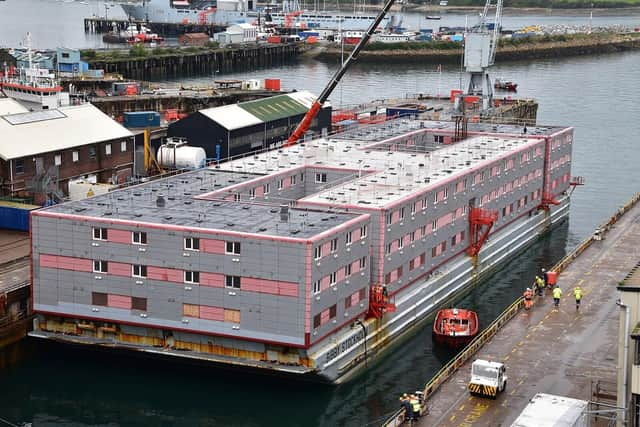'Huge challenge' over asylum cases backlog, MPs warn
The Government’s current business case for reform of the asylum system is “incomplete and unrealistic”, according to the Public Accounts Committee (PAC).
It also said adequate safeguards are not in place to protect against the risks to vulnerable people.
Advertisement
Hide AdAdvertisement
Hide AdThe cross-party committee raised concerns that the department’s method to increase the number of asylum decisions it makes is by “introducing poorly designed questionnaires and assuming claims are withdrawn” and suggested this approach risks seeing people in genuine need not having their application properly considered.


Prime Minister Rishi Sunak has pledged to clear by the end of 2023 the backlog of older cases which had been in the asylum system as of the end of June last year.
By the end of June this year, there were 67,870 so-called legacy asylum cases awaiting a decision.
The PAC report said the Home Office’s own analysis has suggested that even if the legacy backlog is cleared by the end of the year, there will still be another backlog of around 84,000 new asylum claims – those made after June 2022.
Advertisement
Hide AdAdvertisement
Hide AdThe committee said: “Despite claiming to have increased the number of asylum decisions it makes through its asylum and protection transformation programme, the Home Office still faces a huge challenge to clear the backlog it has allowed to build up.
The report suggested the Home Office does “not seem to understand the implications of making more asylum decisions on the wider asylum system”.
The report, while published on Friday, was completed before an announcement in Parliament this week to cut the number of hotels used to house migrants by 50 over the next three months, “with more tranches to follow shortly”.
PAC chairwoman, Dame Meg Hillier, said the “compromises being made by the Home Office to meet its commitments (to clear the backlog) are alarming, and some could have grave consequences”.
Advertisement
Hide AdAdvertisement
Hide AdIt comes as analysis by the Local Government Association found that the number of households living in temporary accommodation has risen by 89 per cent in the past decade.
Number rose to 104,000 households at the end of March 2023 – the highest figures since records began in 1998 – costing councils at least £1.74 billion in 2022/23.
The severe shortage of social housing means councils are being forced to pay to house people in private temporary accommodation, including hotels and B&Bs while they wait for a permanent home.
Councillor Darren Rodwell, Housing spokesperson for the Local Government Association, said: “Councils have a proud history of supporting humanitarian efforts and continue to work hard to protect and support refugees and help deliver a wide range of government asylum and resettlement schemes.
Advertisement
Hide AdAdvertisement
Hide Ad“However, combined pressures from these many schemes are growing on councils and there continues to be a crisis across the refugee and asylum system. This is being compounded by a housing crisis, the pace and scale of asylum decision making and the rapidly approaching deadline for all remaining Afghan families to move on from hotels by the end of the year.”
A Home Office spokesperson insisted the department has “taken immediate action to speed up asylum processing whilst maintaining the integrity of the system”, including “simplifying guidance, streamlining processes and introducing shorter, focussed interviews”.
The Government maintains it is “confident that with increased capacity and improved efficiency this will help deliver further significant output over the coming months” regarding the legacy backlog.